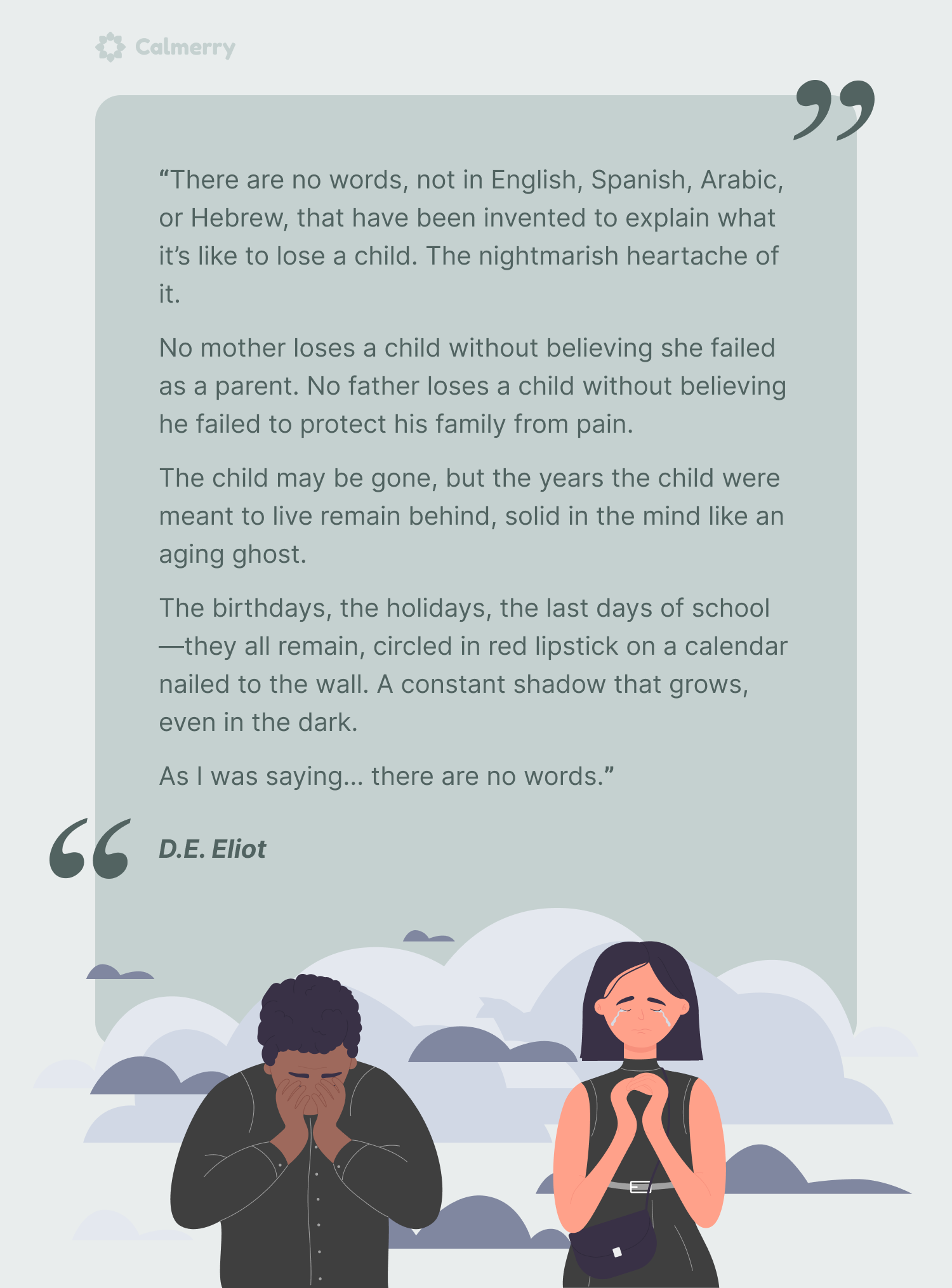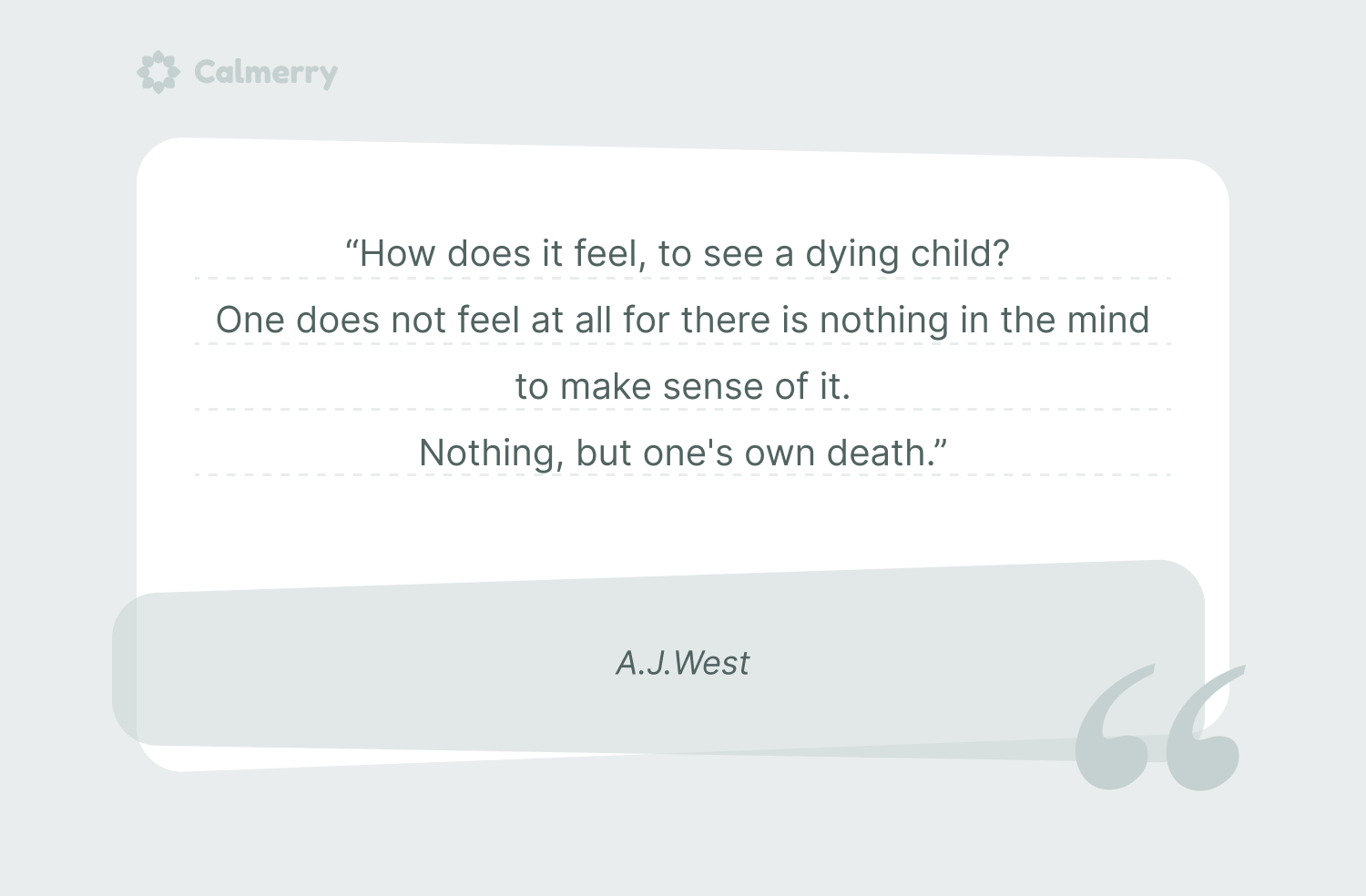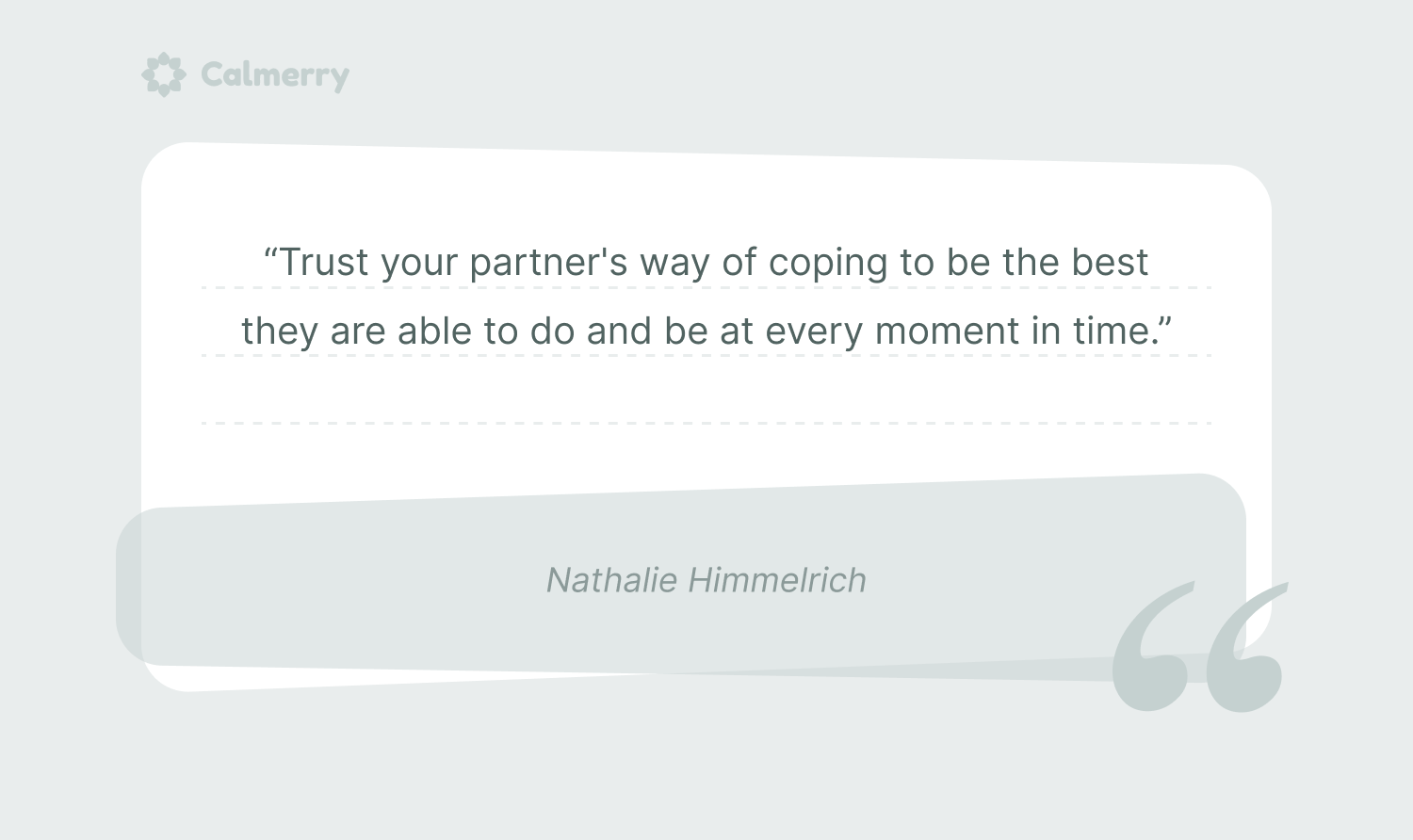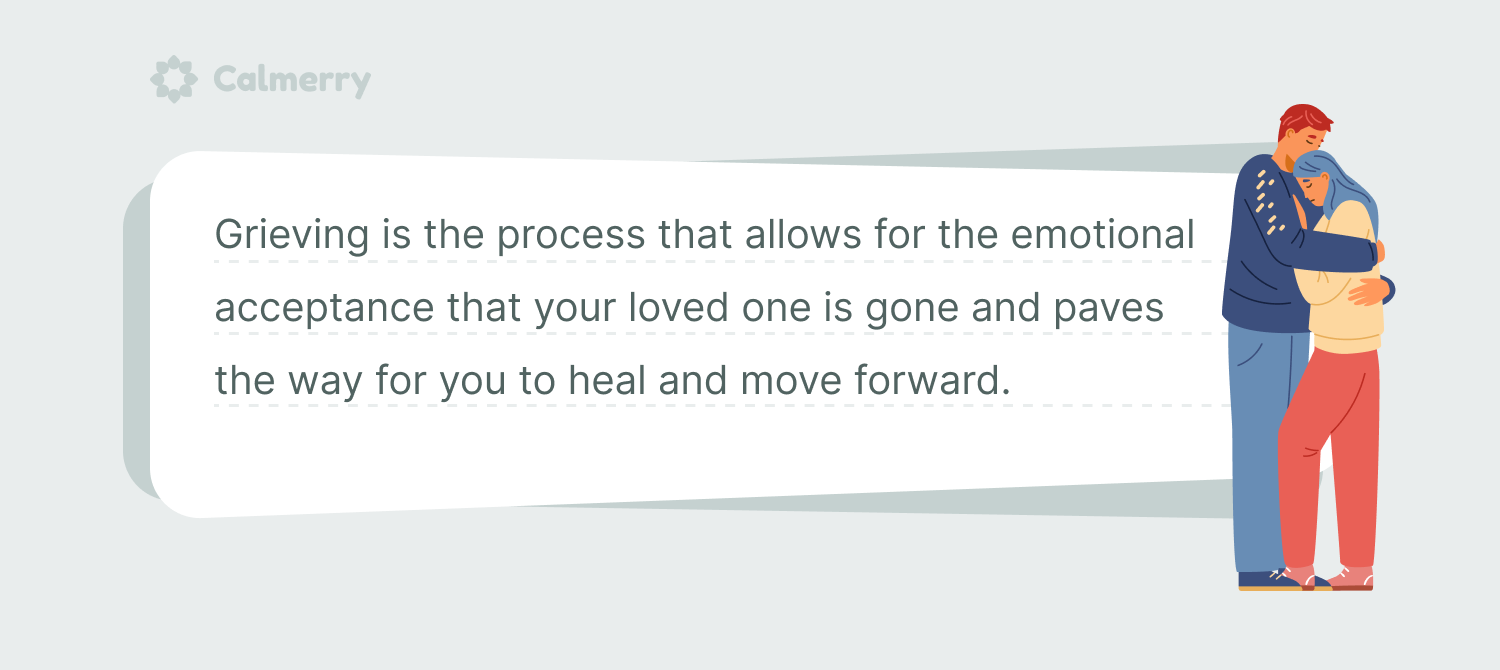When Parents Grieve: Surviving the Loss of Your Child

In this article
The loss of a child is quite possibly the single most painful experience that parents can face. It is a loss that is unimaginable, in an instant ending the hopes and dreams you held for your child and leaving you to somehow go on.
You have no words. Sometimes all you have are tears and the emptiness that remains. How do you move forward when all you want to do is scream and beg for more time? Grief can take you to dark places and isolate you from the people you love and need the most. A child’s death affects the entire family. It can test even the most solid of relationships and even affect how you parent your other children.
Grieving the loss of a child is something no one is ever prepared for. Left unresolved, grief can create emotional distress and keep you locked in a cycle of pain and loss. Seeking support from an online therapist can provide a space for you to work through your grief and find ways to move forward. But just what is healthy grieving? If you’ve lost a child, there are things you can do to help your heart heal and bring some peace and comfort to your life.
Understanding grief and grieving
Most people think that grief is simply the sadness, pain, and sorrow you feel when a loved one is lost. In fact, the experience of grief is much more than just feeling sad. According to the American Psychological Association (APA), grief is “the anguish experienced after significant loss, usually the death of a beloved person.” Grief can sometimes become so intense that it results in life-threatening symptoms such as self-neglect, and suicidal thoughts.
Some common symptoms of grief include:
- Emotions: Anger, anxiety, blame, confusion, denial, depression, fear, guilt, irritability, loneliness, numbness, sadness, shock, or yearning
- Thoughts: Confusion, difficulty concentrating, disbelief, preoccupation with what was lost
- Physical: Dizziness, fast heartbeat, fatigue, headaches, hyperventilating, nausea, shortness of breath, tightness or heaviness in the throat or chest, or changes in weight
- Behaviors: Crying spells, irritability or aggression, low energy, loss of interest in enjoyable activities, restlessness, or problems with sleep
Initially, you feel an intense sense of loss and grief. Honestly, you may always feel some sense of grief, but it will change over time as a result of the grieving process. Grief is the intense emotional response to a loss. Grieving is the process that allows for the emotional acceptance that your loved one is gone and paves the way for you to heal and move forward.

Grief expert, Elisabeth Kubler-Ross, author of On Death and Dying, described the grieving process as occurring in a series of five stages. Each stage represents the emotions people facing loss experience and the mechanisms they used to make sense of what’s happening.
The five stages of grief include:
- Denial – Denial helps you to initially survive the loss. You may deny what you’re seeing or hearing and even go numb. It’s akin to being in a state of shock. It’s the body’s way of protecting you from the full impact of what’s happened. As the denial fades, you can begin to process what’s happened.
- Anger –This is the “why stage”…why my child? Anger brings you back from denial and binds you to the present. This stage is especially important because the more you truly feel your anger and express it, the more it will begin to dissipate, paving the way for healing.
- Bargaining – This is the stage of false hope. In desperation, you may falsely believe that you can somehow bargain with God or the universe to go back in time and bring your loved one back. It’s a time characterized by “what if’s” because we want the world we had.
- Depression – This stage brings you to the present, and where you experience those feelings of emptiness and sadness. These feelings can be quite intense. One thing to know is that depression during this time is a normal and appropriate response to the loss. This stage can last for some time, and you don’t have to “get over it” or “snap out of it”. This depression is another step on the way to healing.
- Acceptance – Acceptance is not “being OK with what happened”. This stage is about accepting the reality that your loved one is gone. It’s the place of learning to live with what’s happened.
One thing to know: the idea of “stages” may have you thinking that grieving is a step-by-step process. It’s more like a long and winding road.
The fact is, these stages of grief are a general framework. They don’t always occur in order and not everyone will experience every stage or in the same way. You might even go back and forth between them during your grieving process. The point is, it’s normal to experience a variety of emotions as you’re grieving. And, even for people in the same family, the experience of grief is different.
The effects of child loss on parents
For parents, losing their child is impossible to even think about. It is a traumatic event that can have lasting effects. So, it’s no surprise that a child’s death can trigger trauma reactions, including post-traumatic stress disorder (PTSD), depression, and even health problems. Left unaddressed, these issues can endure for years after the loss, affecting parents, and sometimes other family members, individually and as a couple.
The long-term effects of the loss can significantly impact the couple’s ability to support each other through their grieving process. Even the strongest marriage is tested and can break under pressure. While many couples stay together, bereaved parents are more likely to divorce than couples who have not experienced the loss of a child. Dealing with conflicting feelings can be difficult. Communication can break down, leaving each parent feeling alone in their grief.

Parenting the other children in the home can be impacted too. At the same time they’re grieving the loss of one child, parents are struggling to be present and engaged with the other children. Following a loss, parents are dealing with so many feelings and needs – motivation, a sense of control, perspective, parenting and setting boundaries for their children, and dealing with relationships. They also desire validation of their emotions and experiences and seek family renewal and healing. That can be a heavy load.
You want to move forward. You want your marriage to remain intact. You need your partner. And, you want to be there for your other children because they’re grieving too. But you’re struggling. When you’re in the grips of grief, you might wonder if surviving the loss of a child is even possible. It is, and you can.
Life after child loss
As devastating as losing a child can be, there is healing through grieving. Aside from time, which is an essential part of the grieving process, there are things you can do to help heal your heart and help you learn how to live again.
Support each other
You and your partner are sharing a loss that only the two of you can know. It’s important to lean into each other and support each other. Take care of each other. There will be times when you don’t see things the same way, and that’s ok. Give each other grace when you stumble. While some marriages can’t survive such a blow, many do. And, couples often report feeling closer after experiencing such a life-changing event.

Find a support group
Social support is key to healing. Chances are, you don’t know other couples who have lost a child. Support groups give you an opportunity to connect with others who have experienced this kind of loss. It’s also a safe space to share what you’re thinking or feeling with people who understand.
Interestingly, some parents who have lost a child experience a profound shift in perspective and emotional growth through the loss. It’s a phenomenon known as post-traumatic growth (PTG) that seems to occur in some trauma survivors. PTG in no way diminishes the trauma or the loss. Instead, it creates a pathway for those wondering how to live after the death of a child.
One study found that parents who saw their loss as traumatic experienced PTG in terms of a greater appreciation for life and connections with others. Seeking social support seemed to be a significant contributor to that growth.
Take care of you
The intense stress of losing a child can take its toll physically and emotionally. During this time, it’s important to take care of yourself. You may not feel ready for the gym or dance class, and that’s ok. This is the time for basics. Take care of the “Big 3” – diet, exercise, and sleep. Working through grief takes all of your physical and emotional strength. Make sure you’re nurturing your body and fueling it well. Be mindful of over-indulging. Getting enough sleep can have a positive effect on mood and sense of well-being.
If taking time for yourself feels selfish, remember, you can’t pour from an empty cup. You need to rest and recharge so that you have the energy you need and also be able to care for those you love too. Allow yourself the space and time to heal.

Get back into routines
Life seems to stop after a significant loss. One of the challenges parents face is how to live after the death of a child. What does life even look like now? Getting back into simple routines gives you a place to start. Routines are comfortable. They make us feel safe and secure. They’re familiar. Routines can be especially helpful if you have other children at home.
Seek professional help
No one teaches us how to survive the loss of a child, and the intense emotions of grieving can be overwhelming. Therapy can help you work through your loss and help you find healthy ways to cope. Couples counseling can help you and your partner find ways to support each other. Family counseling can help you heal as a family and figure out what comes next.
Therapy can help in the early days after a loss as well as later in the process. How you feel may change over time, and you may be surprised at some of the things that will arise. Counseling can help you navigate those issues and find healthy ways to cope.
For a small number of people who experience grief (about 10%), their grief doesn’t ease. They don’t reach that place where they can move forward. This is known as complicated grief or prolonged grief disorder (PGD). This type of grief often occurs along with PTSD, anxiety, or depression. The risk for PGD is greater when the death of the loved one is sudden or the result of a traumatic event. In such cases, reaching out for professional support, such as the compassionate help offered by Calmerry, is crucial to provide you with the guidance and care you need during these difficult times.
Start where you are
The loss of a child is never easy. There is healing after loss, and finding a place of comfort is possible. It is an experience you don’t have to endure alone.
With the rise in access to therapy via online resources, help is more accessible than ever before. Online therapy allows you to access care when and how it makes sense for you. And online therapy has been shown to be as effective as traditional in-person counseling. When you feel ready, there is help, and there is healing.
online therapy
live video session


